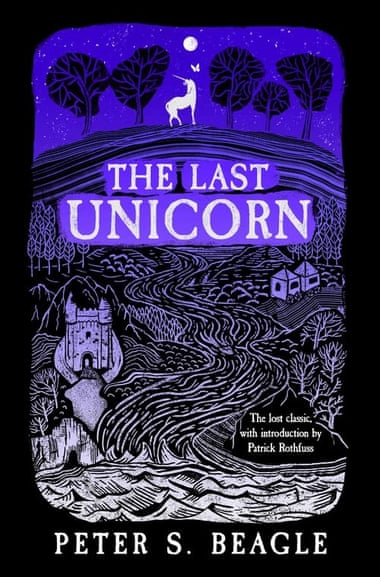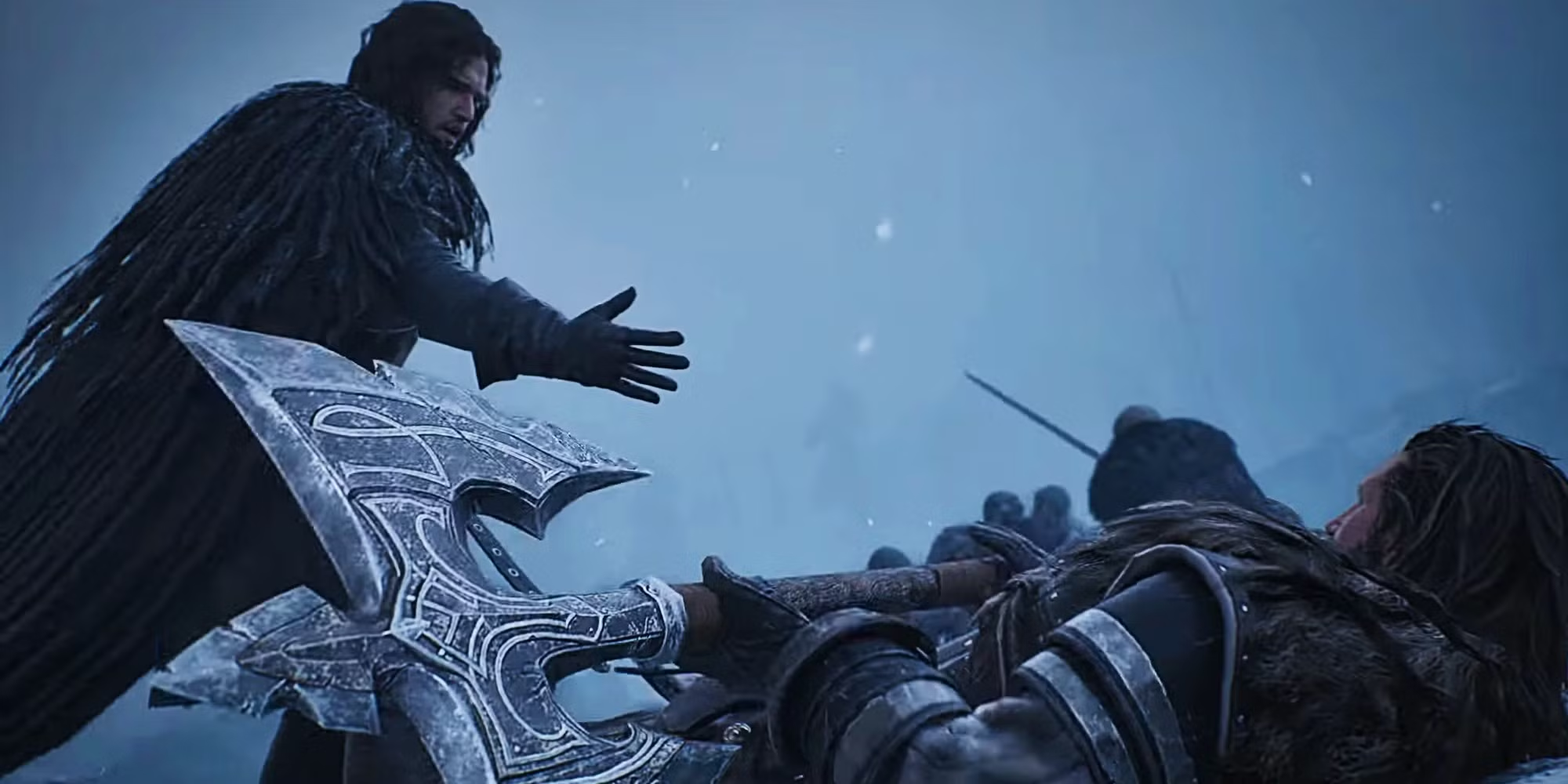It is a lyrical, beautiful fantasy story about a mythical beast who sets out on a quest into a world that no longer believes in her to find out if she is truly the last of her kind.
Published in 1968, The Last Unicorn by Peter S Beagle spawned an animated movie 40 years ago and is a cherished novel that appeals to children and adults alike. But it’s not surprising if you haven’t heard of it. It hasn’t been published in the UK for half a century.
This week it is finally being reissued, the latest in a string of classic fantasy novels to find a new audience thanks to the prevalence of the genre on TV and the big screen.
With the Game of Thrones prequel House of the Dragon hitting Sky Atlantic on Monday, Netflix offering a bonus episode of its world-conquering series The Sandman, and Lord of the Rings forerunner The Rings of Power streaming on Amazon Prime Video from 2 September, fantasy fans have never had it so good.
The surge of interest has predictably boosted sales of the source material – the DC comics written by Neil Gaiman from which The Sandman was adapted are topping the Amazon graphic novel charts, and Tolkien and George RR Martin’s doorstep fantasy novels are again riding high in the fantasy listings. But the viewing public’s increased appetite is also helping bring some lost classics back into print.

As well as Beagle’s novel, other writers’ work is being reissued, including John M Ford’s novels The Dragon Waiting and Growing Up Weightless, Hope Mirrlees’s 1926 faerie fantasy Lud-In-The-Mist, and Antonia Barber’s The Ghosts, while books such as the Arabic fantasy The Tale of Princess Fatima, Warrior Woman, and Japanese author Yukio Mishima’s delightfully weird Beautiful Star have recently had their first ever English-language publications.
Beagle, 83, fought a six-year battle to get back the rights to his works in a financial elder abuse case that was resolved last year. Now, it seems, is the perfect time to have settled that and republish his book.
“It’s one of the quirks of publishing that a book can be an absolute classic on one side of the Atlantic and almost unheard of here,” said Marcus Gipps, publishing director at Gollancz. “In the US this book is a standard of fantasy, much like Narnia is for us, but the issues around the rights, especially the question of who controlled them, was a very complex one. We all had to wait while the legal discussions went on.”
He said interest in the book in recent times had been helped by BookTok, a corner of TikTok devoted to reading. “The fact that generations of predominantly US authors have been inspired by Peter’s work means there are champions across social media to help us get the word out, including Patrick Rothfuss and Neil Gaiman.”
Rothfuss, author of bestselling fantasy novels such as The Name of the Wind, has written an introduction to the new edition. Gaiman told the Observer that Beagle had had a direct influence on his own work, especially The Sandman.
He said: “The first book of Peter’s I read was the magical afterlife fantasy, A Fine and Private Place. I fell in love with it, and years later blatantly stole the idea of a talking raven and put it into Sandman.
“I really liked The Last Unicorn. I love that Beagle got his intellectual property back and that it’s out there to reach a brand new audience.”
Last Christmas, when Mark Gatiss wrote and produced a new version of the 1972 fantasy film The Amazing Mr Blunden for Sky, it led to the first reissue in 30 years of the book both productions were based on, The Ghosts by Antonia Barber, first published in 1969. Donna Coonan, an editor at Virago, had fallen in love with the book a decade before but had not been able to justify republishing it until the announcement of the TV movie boosted interest.
Gollancz has more lost fantasy classics on its schedules, including the work of Ford.
“Genre representation is brilliant at the moment,” said Gipps of the appetite for fantasy on TV. “We all grow up on fantasy, from [Enid Blyton’s] The Faraway Tree to Narnia to Middle-earth, but previous generations have largely, with many exceptions, moved away from it as they grow. It’s always been a popular but niche genre of publishing, hugely loved by those who love it, but not often cutting through to the wider market. There’s no doubt that fantasy has overperformed in other media, never more so than today, and I’m sure this has had an impact.”
Claire Ormsby-Potter is editorial assistant to Gipps at Gollancz, and one of those for whom the republication of The Last Unicorn was something of a personal mission.
She believes the massive production values on the current crop of fantasy streaming shows have helped encourage viewers to seek out novels in the genre that might have fallen by the wayside over the years.
She said: “I do think the scope of what studios can do has really proved itself in modern live-action adaptations of fantasy novels. Game of Thrones and Lord of the Rings were so huge in scope and delivery that people were able to imagine epic fantasy in live action as something that felt tangible.
“These huge global franchises have had such massive impact that it’s really opened the door for people to give fantasy fiction a chance when they might have written it off previously.”




















![[Book Review] The Blade Itself (The First Law Trilogy) by Joe Abercrombie](https://bendthekneegot.com/wp-content/uploads/2018/01/1516047103_maxresdefault-218x150.jpg)
















